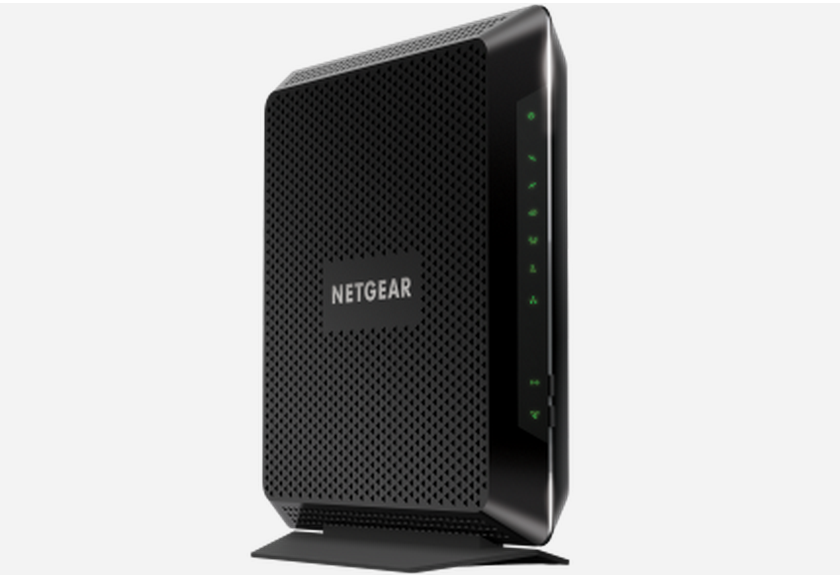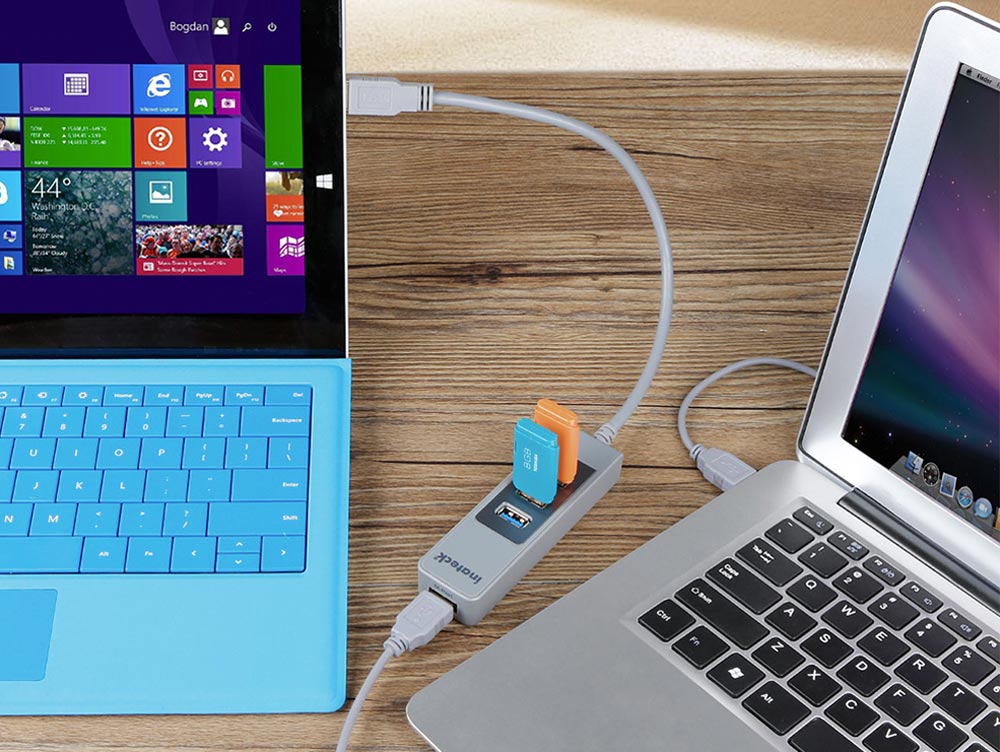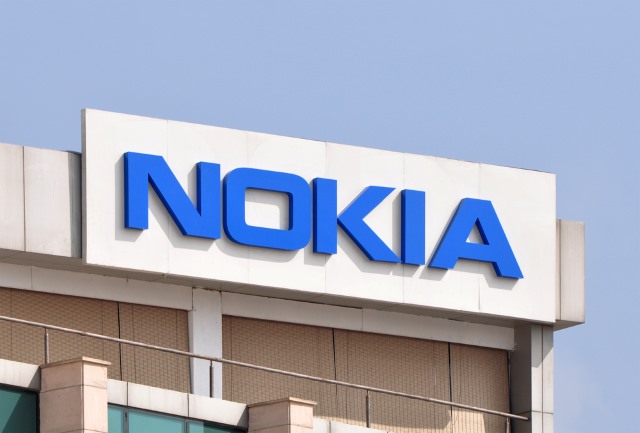
Buying an AMD 300 series graphics card? You need these Samsung 4K FreeSync monitors
Have you bought, or are you planning to buy, one of AMD's new graphics cards, like Fury X or R9 380? If so, well done my fellow PC builder; these cards are extremely powerful, while being competitively priced. Great choice.
While not the first cards to feature FreeSync, the higher end of these new cards will allow for comfortable 4K gaming too. Obviously you need a 4K FreeSync monitor. Well, need is a strong word -- you can get by without it (it is not food or water), but you do need it if you want to be the coolest PC gamer in your neighborhood (and you do). Today, Samsung announces two such monitors that will have you drooling.

Lawsuit fights Uber's user location tracking plans
Uber has faced numerous complaints since its inception in 2010, including suggestions that drivers are not properly vetted. Now the taxi service is facing legal action over plans to track the location of its customers whether the app is running in the foreground or background on their phones.
The new policy is due to come into force on July 15, but the Electronic Privacy Information Center (EPIC) has filed a complaint with the FTC saying that the policy change is unfair and should be investigated by the commission. It will be possible to opt out of this location tracking, but EPIC feels this is unreasonable.

Robots might take over 35 percent of UK jobs [Infographic]
In the industry we’re in you’ll be hard pressed to find someone who is anything but positive about the development of technology. Thanks to technological advancements, we can carry whole computers in our pockets, travel to anywhere in the world without having to leave our living room through devices such as Oculus Rift and 3D print body parts to save lives.
But there is one area where people aren’t quite so enthusiastic and that is in employment, where jobs in a variety of industries are under threat from automation.

Microsoft partners with NASCAR -- Windows 10 logo on Dale Earnhardt Jr.'s car
NASCAR racing has both its fans and detractors. Try as I might, I fall into the latter category. For me, watching cars go around a circular track for hours is a great cure for insomnia. Rally car racing is certainly a much more interesting spectator sport, but I digress.
While I don't like NASCAR, enough people do to make it a smart organization to partner with. This is why you see so many sponsorship logos on the cars. Today, NASCAR and Microsoft partner to display the Windows 10 logo on Dale Earnhardt Jr.'s car. The partnership expands beyond the superficial, however.

Google empowers collaborative citizen journalism with News Labs
Google today revealed details of a new project designed to power the world of journalism. News Labs is a joint venture between Google and a number of technology firms and entrepreneurs to make it easier to research and publish stories. It's something aimed primarily at major newsrooms and reporting outlets, but it also features tools that can help to power and promote collaborative citizen journalism.
The search giant has several programs that have been created to make it easier for people to make use of YouTube to deliver and consume news. User-generated news has become increasingly important in recent years, offering not just a wider range of opinion but also unparalleled localization, and Google is keen to be at the heart of it. Newspapers and news websites are far from being the end of journalism; reader interaction adds to the narrative.

NETGEAR announces Nighthawk AC1900 WiFi Cable Modem Router (C7000)
I still remember when cable internet came to my neighborhood. As someone who had done all of his web surfing over dial-up, this was to be a life-changing event. I went to Nobody Beats the Wiz, where I got the modem and Ethernet card for my PC tower.
The excitement of having broadband has since worn off, but it is something I cannot live without. The crazy thing, however, is that I have rented my modems for years -- something the majority of users do. This has really added up over time. Today, NETGEAR announces the Nighthawk AC1900 WiFi Cable Modem Router (C7000). A cable modem and router in one, so you can finally stop renting your equipment and move on to ownership.

CSVPad is a portable CSV editor
CSVPad is a compact, free and portable editor for CSV and similar files.
The program can handle all kinds of format variations: tab separated, colons, semicolons, pipes, dollars and more. Fortunately you don’t have to worry about the details as by default CSVPad automatically detects and uses the correct format all on its own.

5 cyber security tips for travellers
Out of the office on holiday this summer? Despite being encouraged to switch off, and enjoy a well-earned break, the reality is that many people find it difficult to "go dark" and so fall into the trap of checking emails by the pool.
So whether you’re travelling to a conference or a hitting the beach, you need to take appropriate steps to keep your data secure, particularly when browsing the internet or making online payments from your mobile device.

Uncover hidden malware with RunPE Detector
Malware uses many tricks to hide its process, and one of the most common is known as RunPE.
Essentially this involves starting a known and trusted process -- Explorer.exe, say -- in a suspended state, replacing its code with the malware’s own, then starting it up. Even running something like Process Explorer won’t reveal any problems unless you look very, very closely.

Microsoft clears up confusion surrounding Windows 10 Insider licensing
Right before the weekend my colleague Brian Fagioli explained how basically everyone can get a valid Windows 10 license for free. The best part about it is that you do not even need a valid Windows 7 or Windows 8.1 license, even though that is what Microsoft had previously told us, to upgrade from. Or do you?
Shortly after, however, Microsoft apparently had a change of heart, deciding to alter the blog post which announced this so that it reads like users still need a Windows 7 or Windows 8.1 license to take advantage of its free upgrade deal. And this has generated plenty of confusion, with Microsoft's own Gabriel Aul seemingly writing one thing in the latest version of the said blog post and saying something else after on Twitter. It is amateur hour at Microsoft, people.

Sony releasing new 1TB PlayStation 4 in July
Known as the 1TB PS4 Ultimate Player Edition (or PlayStation 4 Ultimate Player 1TB Edition depending on who you're talking to), Sony is launching a new PlayStation 4 next month. With the ever-growing market for downloadable content, it's difficult to have too much disk space. Recognizing this, Sony is doubling the size of the largest capacity PS4.
The 1TB console will launch next month in the US, Asia and Europe, and the announcement comes just weeks after Microsoft announced a 1TB version of its Xbox One. Gamers in Japan will be able to get their hands on the console by the end of June, but the rest of the world will have to wait until July 15. There's no word on pricing, but Sony has detailed a few other changes that have been made to this version of the console.

More than just a USB hub -- Inateck HB4009 [Review]
USB hubs are commonplace and, let's be honest, not especially exciting pieces of kit. Inateck’s HB4009 is a three-port USB 3.0 hub, but it also has an extra trick up its sleeve. It has a Magic Port, allowing you to link two systems together for file transfers or establish a client/host link using the USB On-The-Go (OTG) standard.
This makes it a versatile little device as you can link Windows, Mac OS and Android devices to their own kind or to each other. You can also attach another USB device like a flash drive or camera to a system, such as a tablet, that might not otherwise have a suitable port.

Nokia will re-enter the smartphone market in 2016
Finnish navigation and mapping giant Nokia is planning a return to the mobile industry in 2016, but it will not manufacture any smartphones.
Instead, CEO Rajeev Suri plans to find partners capable of working on the manufacturing and distribution parts, while it designs and licenses its brand name.

Back up Windows and program settings with CloneApp
CloneApp is a tiny, free and portable tool which can back up and restore the settings of many popular Windows programs.
Supported software includes 7-Zip, Adobe Reader, Classic Shell, Gimp, Google Chrome, Google Earth, IrfanView, Internet Explorer, Microsoft Office 2010/ 2013, Firefox, Opera, VLC Media Player, and it can preserve plenty of Windows settings, too: Favorites, Contacts, Network folder settings, Start Menu and more.

Taylor Swift effect: Apple changes course, says it will pay labels and artists during free trial
It has been an eventful day for folks vested in the music industry, streaming business, and listeners alike. The day began with Queen of Pop Taylor Swift writing a public letter to Apple explaining why she isn’t putting her latest album “1989” to the impending Apple Music streaming service. And the day is closing with Apple addressing the issue and doing the right thing.
In a blog post, Swift noted that Apple’s decision to not pay labels and artists royalty for the first three months -- Apple Music will be a free trial to users -- is unfair. She said -- something which many people have nodded to since -- that three months is a long period, and it could mean a lot to indie artists.



